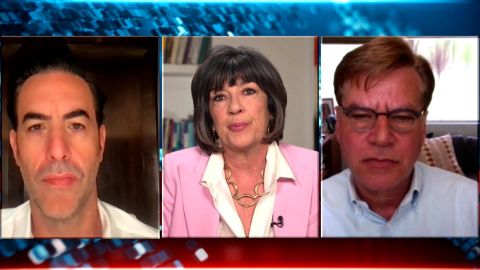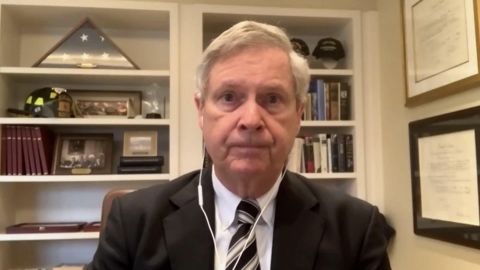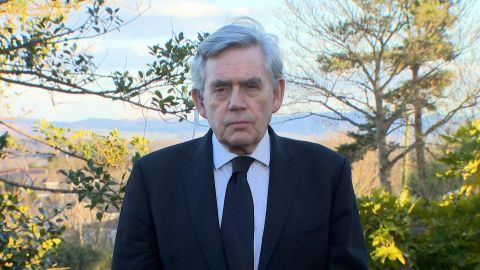Read Transcript EXPAND
CHRISTIANE AMANPOUR: What do you make of the reality in which we live mirroring, to some extent, your film and that era?
AARON SORKIN, WRITER/DIRECTOR: I’m not sure if we boomeranged back to 1968, like we were stretching a rubber band, or it’s always been there, and somehow Donald Trump uncovered it. This all started in 2006, almost 15 years ago now, when I was — Steven Spielberg asked me to come over to his House on a Saturday morning. And just to be clear, that’s not common. I don’t hang out with Steven Spielberg on Saturday mornings. He told me he wanted to make a movie about the Chicago Seven. And I said, Chicago Seven, that sounds great. Count me in. Chicago Seven will make a great movie. And I left his house and I called my father and asked my father who the Chicago Seven were. So I was just saying yes to working with Steven Spielberg then. But I did a lot of research. There are a dozen or so good books, some of them written by the defendants. There’s a 21,000-page trial transcript. But I always wanted the film to be about today and not 1968. I just never imagined how much about today it would end up being. Just also want to mention the January 6 attack on the Capitol. It was actually Donald Trump, Rudy Giuliani and a few others who stood at a microphone and did exactly what the Chicago Seven were on trial for doing, inciting a riot.
AMANPOUR: I mean, it is — it really is extraordinary. And, of course, in a moment, we will also talk about “Borat,” because that also has the Rudy Giuliani episode in it.
(CROSSTALK)
SORKIN: I’m excited to talk about “Borat.”
(LAUGHTER)
AMANPOUR: You will soon. Sacha, you also kind of have a long history with Abbie Hoffman right? You play Abbie Hoffman in the film. He’s the head of the Yippies, the Youth International Movement. And you, though, I think, came across him, studied him when you were still at college.
COHEN: Yes. So, 1992, I did my undergraduate thesis about Jews in the black civil rights movement in the ’60s. And Abbie features prominently. And he was one of many students who went down the South and risked their lives to fight against systemic racism. And my — what I was looking into was, why were Jews 30 times more likely than American whites to be involved in the civil rights movement? Then that group went on and formed the basis of the anti-Vietnam War movement. So, many of the Chicago Seven had actually been down South in the Freedom Rides. And Abbie was somebody who I found fascinating, even back then, because he was using humor to undermine the establishment and mock unjust power. So, he was inspirational even back then.
About This Episode EXPAND
Gordon Brown; Aaron Sorkin; Tom Vilsack; Sacha Baron Cohen
LEARN MORE


